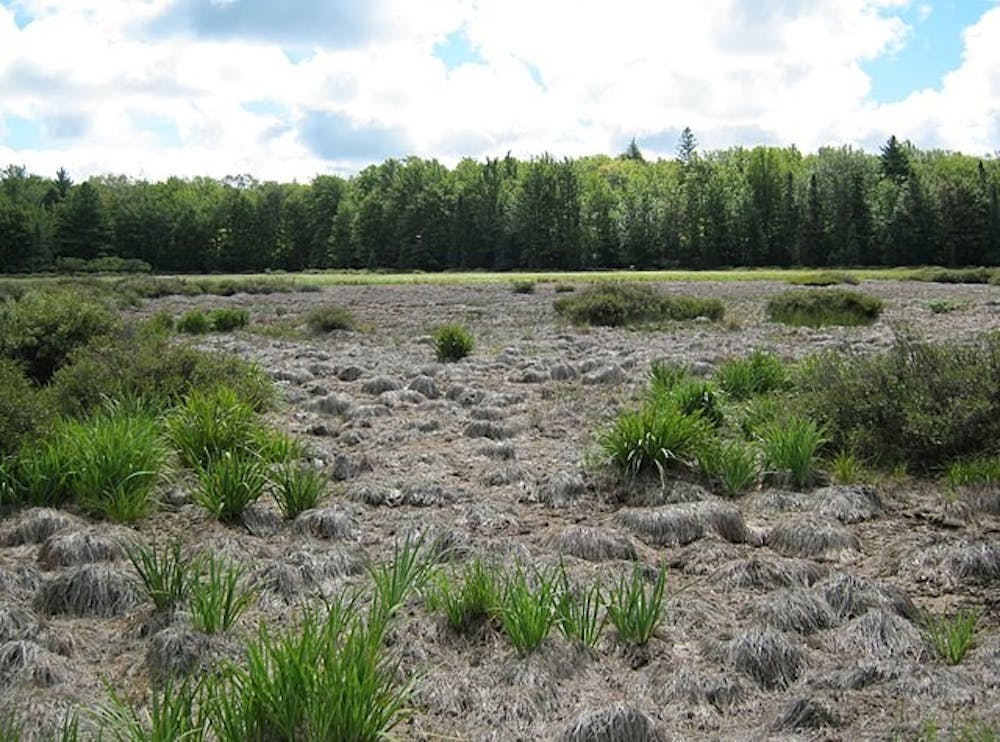When the Supreme Court started its 2022 session on the first Monday of October, all eyes were on the justices and the docket of cases prepared for the term. Not only was it the beginning of the 2022 session with the newly appointed Justice Ketanji Brown Jackson, but the first case of the docket, Sackett v. Environmental Protection Agency, is sure to have great influence. This case has the potential to change not only what and where the Environment Protection Agency can regulate with the Clean Water Act and subsequently change national climate laws for the worse. This case is an attempt to rewrite what waterbodies and specifically wetlands the EPA can regulate.
The attorneys of the petitioners Micheal and Chantelle Sackett’s lay the narrative that the Sacketts were wronged, in many ways, by the EPA. They sought to build a home on the shores of Lake Priest, Idaho, had plans for construction, had hired contractors and architects and had already placed gravel and sand to even out the marshy lot. Once they were given a compliance order from the EPA under the Clean Water Act to remove the gravel and sand placed on the lot, they were denied a request for a hearing and were threatened with $75,000 fines per day if they did not comply with the order. Furthermore, such orders from the EPA are costly to not only potential homeowners like the Sacketts, but to development companies seeking to buy and develop land which homeowners can afford.
The Sacketts’ attorney Damien Schiff pushed for a closer reading of the meaning of “waters of the United States'' in the context of a “significant nexus test.” A significant nexus defines that a body of water is classified as a water of the U.S. if used for transportation and interstate commerce. In the case of the Sacketts, the EPA said the land the Sacketts planned to build on are considered “waters of the United States” under the Clean Water Act of 1972. The implications of this argument have massive effects on anti-pollution legislation. If this case is decided in favor of the Sacketts, the EPA will lose its power to regulate wetlands and the Clean Water Act’s reach regulating areas around wetlands would become void. The Clean Water Act plays a great role in protecting the ecosystems in America's wetlands. This case has the potential to reduce the scope of the Clean Water Act’s enforcement agencies that monitor and protect bodies of water on a state, tribal and federal level.
With the Supreme Court being the most right-leaning it has been in decades, it is likely that this case will result in ground-breaking anti-pollution legislation with a closed reading of the Clean Water Act. This case has the potential to greatly narrow the Clean Water Act to just navigable bodies of water and risk excluding 51 percent or more of existing U.S. wetlands from the protections outlined in the Clear Water Act. Furthermore, a narrow reading would remove protections from important wetlands, such as those in Idaho’s Kootenai National Wildlife Refuge, that prevent flooding and protect larger water bodies by absorbing excess water and pollutants before reaching major riverways that cities rely on. Wetlands act as sponges that soak up, redistribute and slow down floods through wetland vegetation. Without wetlands redistributing water, flooding events will become more cataclysmic as less wetlands means more standing flood water for longer periods of time.
This case has strong implications in Virginia, which is made of about one million acres of wetlands that support unique plants and animals native to this state. If the Supreme Court strikes down the Clean Water Act, the effects will impact all communities in Virginia that rely on protected wetlands for access to safe water. In the decades following, flooding events will be more catastrophic, habitats will be destroyed and water supplies will be poisoned. Having discussions on Grounds and garnering support of the Clean Water Act is just one step to ensure their long term protection. Communities that rely on wetlands need to speak up and raise awareness because once the foundations to uproot wetland protections are laid, it will not be long before the entire state, country and climate go with it.
Apal Upadhyaya is a Viewpoint Writer for Politics at The Cavalier Daily. She can be reached at opinion@cavalierdaily.com.
The opinions expressed in this column are not necessarily those of The Cavalier Daily. Columns represent the views of the authors alone.







